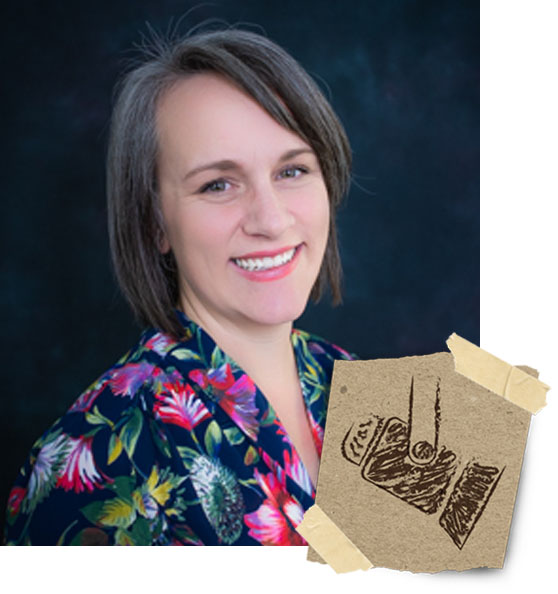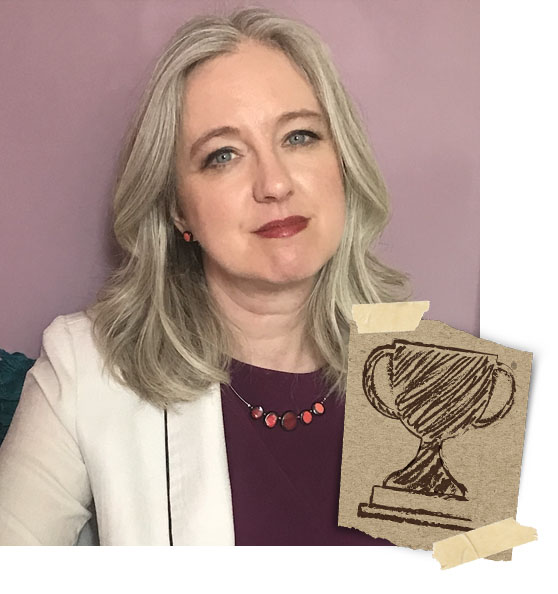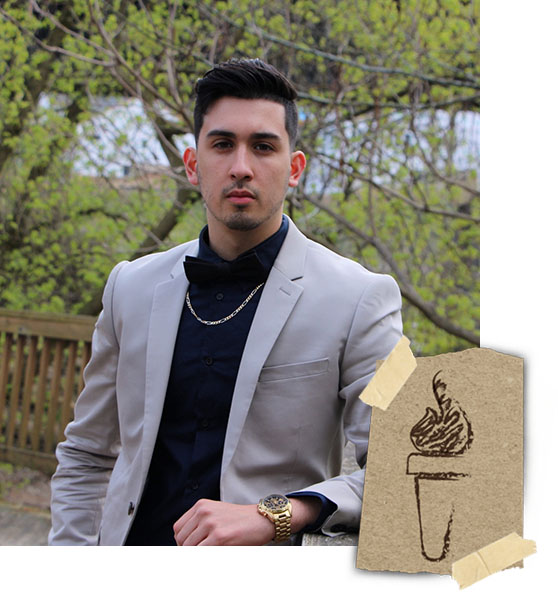Diversity Spotlight: Dr. Breanne Grace
June 15, 2021 - Liz Schondelmayer
 Dr. Breanne Grace earned her PhD in Sociology from Michigan State University in 2013. Since then, she has joined the faculty of the University of South Carolina's School of Social Work as an associate professor. A humanitarian at heart, Dr. Grace's research surrounds the refugee community around the world with a focus on finding solutions for the compassionate resettling of displaced people.
Dr. Breanne Grace earned her PhD in Sociology from Michigan State University in 2013. Since then, she has joined the faculty of the University of South Carolina's School of Social Work as an associate professor. A humanitarian at heart, Dr. Grace's research surrounds the refugee community around the world with a focus on finding solutions for the compassionate resettling of displaced people.
Dr. Grace notes that the amazing faculty she learned from defined her time at MSU.
The highlight of my PhD career was definitely the wonderful faculty in sociology, especially Soma Chaudhuri, Stephanie Nawyn, and Steve Gold. I also learned a lot from my time working in the African Studies Center with David Wiley (also a sociologist!) and James Pritchett, CASID with Rob Glew, the Center for Gender in Global Context with Ann Ferguson. I also had an opportunity to study Swahili at MSU with Deo Ngonyani.
In her work, Dr. Grace often travels the world to visit families who have relatives displaced or resettled on other continents.
I have been fortunate to work with East African refugee communities in camps and settlements in East Africa and in resettlement in the United States. I often work with extended families on both sides of the world. Having the opportunity to work with the same family in different refugee communities has shaped my research and how I think about family, life course, and displacement. It’s really fun to hear stories about someone’s kids or siblings in one part of the world, and then to have the opportunity to fly to another part of the world and meet that person and hear their stories!
As a person who is able to travel and move between locations with relative ease, my research has also forced me to consider questions about the inequalities related to who gets to move, when, how, and why—and whose movement is limited or restricted and why. Migration often separates families, as it is expensive to migrate and even those who can afford to move or to visit family may not be granted a visa to do so. It is sobering to realize that I get to regularly visit other peoples’ family members that they miss and haven’t seen in decades and may never be able to see again. Migration often separates families. Being entrusted with peoples’ stories about their families and serving as a bridge between separated family members is a part of my job that I take very seriously.
Currently, Dr. Grace is working on a book documenting the experiences of East African refugees, and how transnational intervention and policies can shape refugee families for generations.
I am currently writing a book based on 1300 interviews with refugees in East Africa over ten years and it traces how global humanitarian aid, border externalization, and military intervention shape refugee experiences and rights in displacement and how these forces ripple through transnational refugee communities. Even after refugees in the US receive citizenship and are no longer refugees, their experiences remain deeply shaped by their family members’ displacement in East Africa and by US military policy in the Horn of Africa. For refugees living in East Africa, their wellbeing and access to sufficient health care and education is often linked to their family members’ ability to send remittances and provide support. The book explores how transnational connections shape refugee outcomes in multiple locations and the gendered nature of rights in these processes.
Scholars of refugee integration often ignore the connections that refugees have abroad and the way that pre-resettlement experiences shape resettlement processes. My work in Tanzania and with East African refugee communities in the US explores what pre-resettlement dynamics shape life in the US. Some of my work explores how extended family networks shape care work—and transnational care work—in the resettlement process. I am currently finishing up a project that explores how state-sponsored torture experiences in the home country shape how refugees view the state in resettlement and how refugees make sense of anti-refugee movements in the US. A pre-tenure career highlight for me was that an article from this project was published in the New England Journal of Medicine.
The refugee community is often subjected to harmful stereotypes and misinformation. In her role, Dr. Grace works to upend these myths and set the record straight about what it means to be a refugee.
Recently there have been lots of myths circulating about refugees being terrorists. This framing is incredibly problematic and uses nationalism and xenophobia to frame race and religion as inherent threats. I have a recent article (co-authored with an undergraduate student) in Ethnic and Racial Studies that explores how this discourse has been taken up in state-level anti-refugee legislation. Refugees are people who had to flee their country because of persecution they experienced. Many of the refugees I have interviewed experienced this persecution in the form of being tortured, witnessing the killing of a family member, or experiencing targeted forms of violence. Refugees are often fleeing terror. The resettlement process moves so incredibly slow that sometimes refugees are simply born into refugee status. The lack of long-term support mechanisms or solutions to support refugees is itself a form of structural violence.
Lastly, Dr. Grace offers advice for how each of us can become better allies to the refugee community, and help those who have been displaced due to conflict, violence or natural disasters.
The first thing people can do to support refugees is to vocalize support of refugees and asylum seekers to their political representatives. Right now we are at a critical juncture for the US refugee resettlement program and for humanitarian aid programs that benefit refugees abroad. For decades the US was the leader in US resettlement and the US provided meaningful material and financial support of humanitarian operations around the world. There are also humanitarian aid organizations that provide support and services to refugees in refugee camps around the world that continue to need resources.
Under the last administration, the number of refugees resettled each year dropped significantly during a time when there was a critical global need for refugee support. The current administration initially said it would support the refugee program, then waivered, then settled on a low number of refugees to resettle each year. Not all refugees come through the resettlement program where the US government flies refugees from camps abroad to the US; some refugees come through the asylum process. That is, they migrate to the US and request asylum and document their persecution through the legal process. Over the past few years, requesting asylum in the US has become incredibly difficult because of the previous administration’s “Migration Protection Protocols,” which is sometimes known as “Remain in Mexico,” and COVID-related border policy. Supporting refugees also means supporting the legal right to asylum.
Locally, people can support refugees by supporting resettlement programs or refugee health and survivors of torture clinics.
Read more:

Diversity Champion
Faculty/Staff
Dr. Stephanie Nawyn
Dr. Stephanie Nawyn is an MSU associate professor of Sociology, whose work centers on gender studies, migration, refugees, with a focus on resettlement and protection in the Middle East.

Diversity Torch
Student
Julian Trevino
Julian Trevino is a MSU Political Science and Prelaw student. He is also the Associated Students of Michigan State University representative for the College of Social Science. Julian has championed the cause for making East Lansing and MSU, a sanctuary city and campus.

Diversity Matters
We strive to cultivate an inclusive and welcoming college environment that celebrates a diversity of people, ideas, and perspectives.

